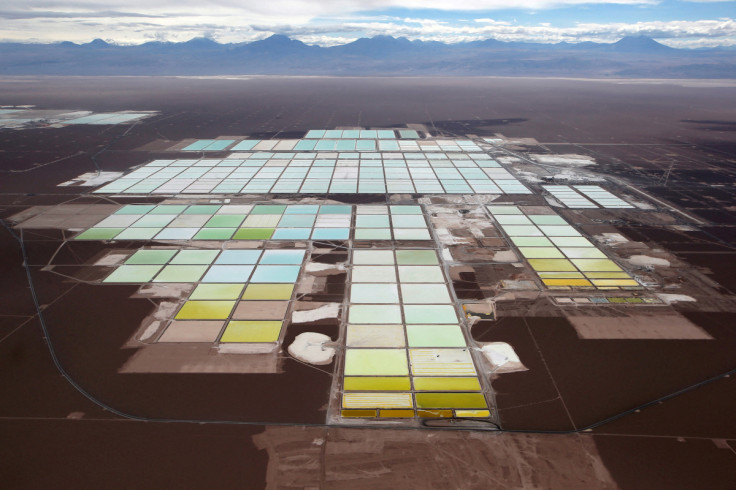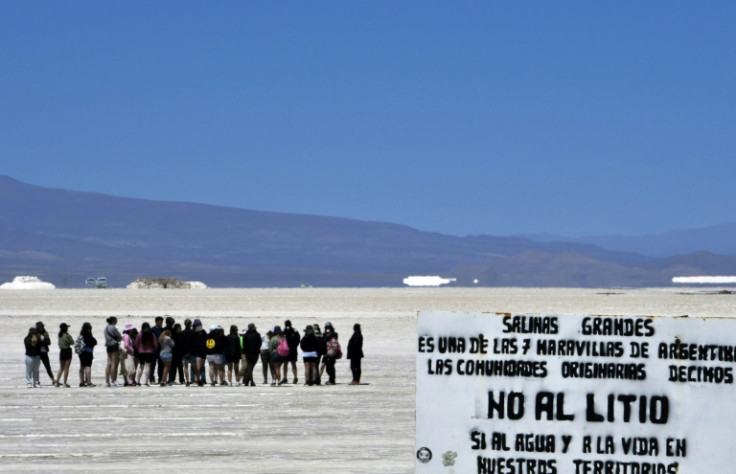The US Could Be The Next Lithium Superpower

The United States is home to the world's largest single deposit of lithium, according to a study published in Science. and the discovery could make the U.S. a major player in the global market.
The late August report found that the McDermitt Caldera on the Oregon-Nevada border contains between 40 million to 120 million tons of commercially retrievable lithium, the key component of electric vehicle and smartphone batteries. This deposit alone would make the U.S. home to the world's largest lithium supply, ahead of the current leader, Bolivia (23 million tons).
Canada-based miner Lithium Americas Corporation has already been granted a concession for lithium extraction in the southern section of the caldera known as "Thacker Pass." Battery-grade lithium production from the Thacker Pass project is anticipated to begin in 2026 with an eventual production capacity of 80,000 tons per year, a company representative from Lithium Americas confirmed on a call with International Business Times on Tuesday.
Lithium Americas is already in talks with the U.S. Department of Energy (DOE) to secure a $1 billion loan to rapidly begin construction of mining and processing infrastructure for the project.
"Thacker Pass is the best and fastest option for the U.S. to achieve meaningful domestic production of lithium at a large-scale," Lithium Americas said in a corporate presentation in October.
The discovery of the largest ever lithium resource within a single country is certain to alter the global lithium market -- and the geopolitics underpinning the coming lithium boom.
An Industry In Flux
The demand for lithium is forecast to increase by 30% annually until 2030, according to McKinsey. Global demand is projected to grow to 800% of the supply in 2022, setting off a "lithium rush" in recent years as private sector miners and state planners seek to discover new caches of lithium and exploit previously unretrievable deposits.
Yet despite seemingly endless demand, the lithium sector has experienced unprecedented volatility lately, independent of the discovery in Nevada. Lithium prices crashed and plateaued earlier in 2023 after peaking near the end of 2022.
More recently, established lithium giants Albemarle and SQM each had billion-dollar acquisition attempts of smaller Australian miners foiled in October, suggesting at least a near-term ceiling for private sector growth amid ongoing uncertainty in the industry.
Lithium Americas now sits on the single largest lithium deposit in the world, and is poised to capitalize on near-monopoly control over domestic U.S. lithium production. The Inflation Reduction Act's Clean Vehicle Tax Credit provision requires that 80% of critical minerals used in electric vehicle battery production be mined in the U.S. or a Free Trade Agreement (FTA) country. The U.S. notably maintains FTAs with both Chile and Australia.
As the first large-scale lithium mine within the U.S., Lithium Americas is well-positioned to navigate the coming regulatory environment favorable to domestic supply chains relative to more established North America-based miners with international supply chains (like North Carolina-based Albemarle, which sees its production come mostly from Chile, Australia and China).
General Motors has an agreement with Lithium Americas granting the auto manufacturer exclusive rights over the first phase of production, which the company told IBT will last for 10 years. Lithium Americas, a publicly traded company, split from its Argentina-based operations in October.
Shifting Mineral Geopolitics
The Thacker Pass/McDermitt Caldera discovery "could change the dynamics of lithium globally, in terms of price, security of supply and geopolitics," Anouk Borst, a geologist at KU Leuven University in Belgium, told Chemistry World.

Before the discovery in Nevada, the majority of the world's lithium resources were located in Bolivia, Chile and Argentina -- the three countries that comprise Latin America's "Lithium Triangle". Bolivia announced the discovery of 2 million tons in July, an event that was overshadowed by the McDermitt Caldera report. Battery-grade lithium production is currently dominated by Australia, Chile and China, with Argentina poised to surge its production in coming years and break into the top three global producers.
China was the largest electric vehicle battery producer in 2022, receiving the majority of lithium exports from both Australia and Chile. China recently finalized two separate $1.4 billion investments for lithium projects in Bolivia, with 100,000 tons of battery-grade lithium production expected by 2025. China appeared poised to control a dominant proportion of the world's lithium resources by the 2030s ahead of the McDermitt Caldera discovery.
Though China produced around 20% of the world's battery-grade lithium in 2022, over 50% of global production came from Australia and Chile combined, each of which maintain FTAs with the U.S. Lithium production from the newly-discovered deposit in Nevada, which is anticipated to begin in early 2025, could supercharge already existing momentum behind U.S.-based electric vehicle component manufacturing.
This could direct Chilean, Australian and Argentine lithium exports towards the U.S., and away from Beijing. Washington has fast-tracked DOE financing for the Thacker Pass project because it serves a key U.S. national security priority in partially wrenching control of the global electric vehicle supply chain away from China.
And recent developments suggest U.S. lithium processing capacity will soon increase, as well. In March, Albemarle announced a $1.3 billion investment in a large-scale lithium processing plant in South Carolina, while Tesla broke ground on a similar facility in Texas in May.
The Road Ahead For Lithium In The US

The exact impact of the McDermitt Caldera lithium discovery remains contingent on the mine's ability to produce battery-grade lithium, as well as external macroeconomic and geopolitical circumstances. The project also still faces a legal challenge from the local Reno-Sparks and Summer Lake Paiute indigenous groups, which claim the mine is the location of an 1865 massacre and mass burial site. Legal challenges from indigenous tribes are expected to accelerate as the mine's construction progresses.
The Thacker Pass project should avoid the intense criticism from pro-environmental activists often witnessed with traditional brine or hard-rock mining operations, though, as Lithium Americas told IBT on Tuesday. Volcanic sediment deposits require far less destructive construction equipment, and the shallow depth of this particular lithium-rich deposit means that the company can continue intensive mining operations for at least 25 years without disrupting the water table (at which point a new permit would be required).
Lithium Americas and Thacker Pass are uniquely situated to capitalize on this potential commodity boom in the windswept Nevada desert, but will undoubtedly face unforeseen obstacles to large-scale production so long as lithium prices remain volatile and mineral governance remains pendular in lithium-producing countries.
The global lithium sector's future is ultimately mixed, as the discovery in Nevada and emergence of the United States as potentially the largest lithium producer presents a completely new reality.
© Copyright IBTimes 2024. All rights reserved.












